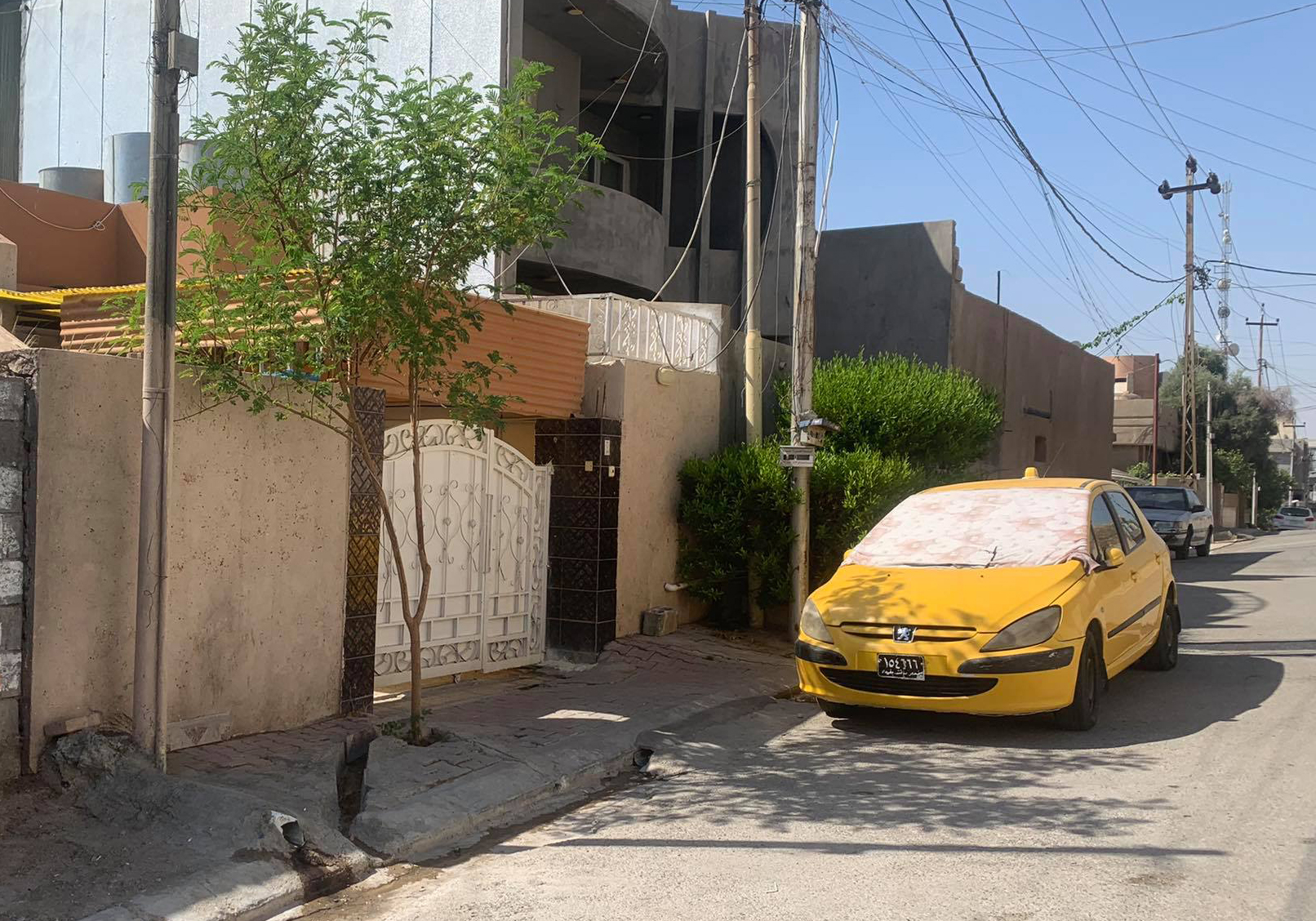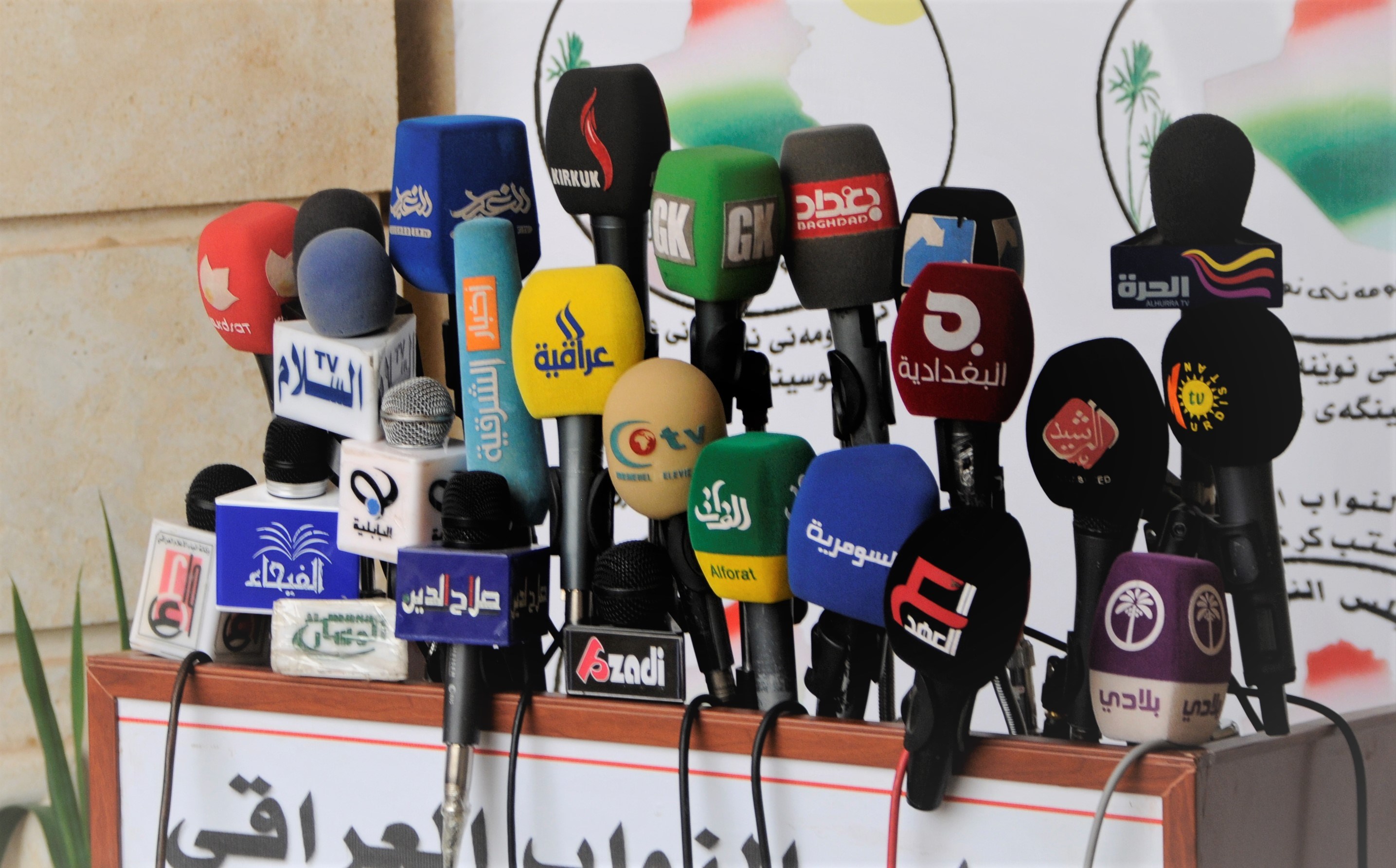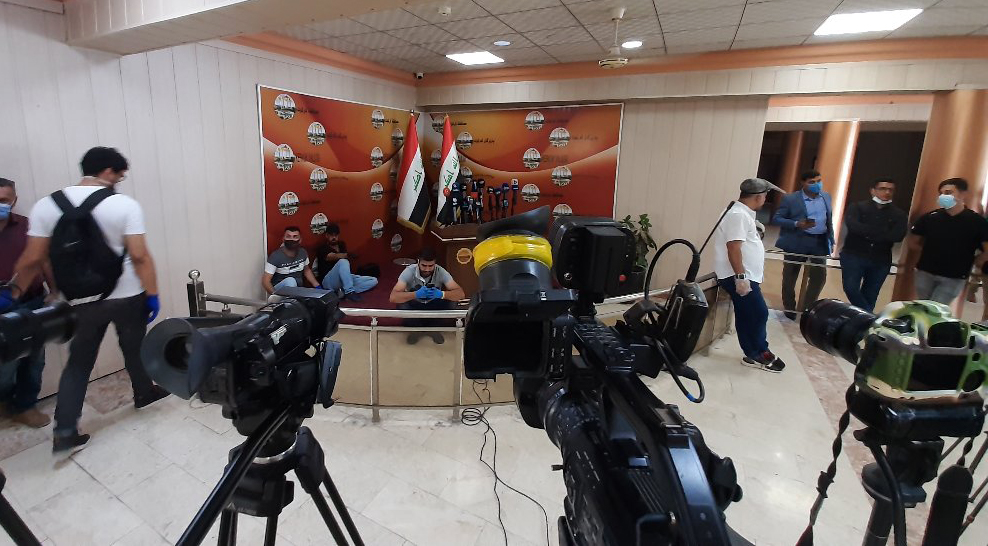The (Iraqi) Kurdistan Journalists' Syndicate closed Kirkuk office leaving behind 750 members without anyone to support them due to political conflicts within the Kurdish political parties and its marginalization by the local government.
Kirkuk branch of Kurdistan Journalists’ Syndicate was closed two months ago. All its documents and equipment have been transferred to the city of Erbil, where it is going to operate with its members via phone calls only.
Hawar Fares, a field journalist in Kirkuk, is so upset about the role of the Syndicate of Journalists that she believes even closing the union's headquarter in Kirkuk will not change anything about their reality.
"Even in the past, they were unable to defend our rights. When violations are practiced against us, we do not know who to turn to and who will defend us,” Fares anxiously told KirkukNow.
Even in the past, they could not defend our rights
According to the procedures of the Syndicate of Journalists, if a journalist who is a member of the Syndicate is subjected to a violation in Kirkuk, he must explain the type of the violation he was subjected to via a phone call, a text message or through chat applications in social media platforms, so that the violation is recorded, but if the journalist is willing to file a complaint, then he has to head to Erbil in person.
Fares says that while defending the rights of journalists is one of the union’s main tasks, in Kirkuk neither the Kurdistan Journalists Syndicate nor the Iraqi Journalists Syndicate performs this duty. Nevertheless, Hawar believes that closing the Kirkuk branch of the Kurdistan Journalists Syndicate is a “political decision, like the parties and authorities who left the city of Kirkuk after the events of October 16, 2017.”
During the events of October 16th 2017, and the days that followed, most of the Kurdish security and political forces and authorities left Kirkuk and other disputed territories which they ruled since the topping of Saddam Hussein regime back in 2003, after the relations between the Iraqi federal government and the Kurdistan Regional Government KRG deteriorated due to a referendum for independence by the Kurdish political parties which covered Kirkuk as well.
Rakan Saeed al-Jibouri, deputy governor then, had occupied the position of acting governor of Kirkuk in October 2017, by a decision of former Iraqi Prime Minister Haider al-Abadi, instead of Najm al-Din Karim, who was dismissed from his position in September of the same year by a decision of the Iraqi parliament.
The northern oil-rich city of Kirkuk, located 238 kilometers north of Baghdad, is an ethnically mixed province for 1.6 million Kurds, Sunni and Shiite Arabs, and Turkmen. It has long been at the center of disputed territories between Baghdad and Erbil.

Sattar Jabbari, relations officer of the Kirkuk branch of the Kurdistan Journalists Syndicate, told KirkukNow, "After the events of October 16, the Kirkuk administration does not deal with us appropriately, although we held many meetings in order to be able to defend the rights of journalists, but we it was useless because there was discrimination, given that our union is affiliated with the Kurdistan Region and is not licensed in Iraq.”
Jabbari says member of the Kurdish union were deprived of residential plots alike members of the Iraqi union.
"We had to close our headquarters in Kirkuk and move it to Erbil. The Kirkuk branch of the Journalists Syndicate is now in Erbil," Jabari confirmed.
We had to close our headquarters in Kirkuk and move it to Erbil
This comes at a time when Kirkuk journalists are subject to many violations and harassment while performing their duties especially in covering security events due to the presence of more than five armed-security and military forces in that province, which requires the presence of organizations and unions to defend them.
The last violation against Kirkuk journalists occurred during the ceremonies of the new school year in Kirkuk on November 1, 2021, when the Director General of Kirkuk Education, Abd Ali Hussein Touma, verbally abused the journalists present to cover the ceremonies in an elementary school, including KirkukNow reporter, and ordered his body guards to expel them from the school campus.
But the journalists succeeded, through their personal efforts, and in the absence of the role of the Syndicate of Journalists, in forcing the Director of Education to apologize for the violation he committed.
“The transfer of the Kirkuk branch of the Kurdistan Journalists Syndicate to Erbil means the isolation of Kurdish journalists. We can say that they do not give any consideration to the journalists affiliated with that union in the city of Kirkuk,” said Mahmoud Rizgar, a freelance journalist and member of the Kirkuk branch of the Syndicate of Journalists.
Rizgar says that although the union was present last year in Kirkuk, it "was not of significant benefit to journalists and union members."

Microphones of a number of media channels at a press conference in Kirkuk. KirkukNow
The Kirkuk branch of the Kurdistan Journalists Syndicate has more than 750 members, most of whom are registered as active journalists.
“If their excuse to move the union headquarters to Erbil is that they were subjected to ill-treatment, then I disagree because during the four years since the events of October 16th, no force has been exposed to them in this city, but the transfer of the union headquarters is related to political conflicts within the union,” Rizgar added.
Union officials have not denied that political factors affected the union's performance.
"The other reason behind closing the headquarters is due to party interference. One of the parties wanted to interfere in the affairs of the union, so if the union has no authority, its absence is better than its existence," Jabbari added.
One of the reasons for closing the headquarters is related to the current situation in Kirkuk
According to the statistics of the Kurdistan Journalists’ Syndicate, during the past four years (early 2017 until the end of 2020), 12% of the violations recorded against journalists were in Kirkuk.
The union’s statistics indicate that 138 cases of violations were recorded last year, 25 of it were in Kirkuk.
Azad Hama Amin, the head of the Kurdistan Journalists Syndicate, said they only closed Kirkuk branch office bot the entire branch which is moved to Erbil, and some of the equipment was returned to Erbil but the headquarters was not closed.
"One of the reasons for closing the headquarters is related to the conditions in Kirkuk as the governorate administration does not deal with us in a proper way, although we have repeatedly asked to coordinate with the governorate administration and the Iraqi Journalists Syndicate, but our efforts were fruitless."
Kirkuk, 2020: Covering a gathering of teachers and employees of the Kurdish Education Department. KirkukNow
Kirkuk governorate, with 58 violations against journalists, ranks second in the figures byAssociation for the Defense of Press Freedom in 2020, where four deaths were registered along with 305 other violations.
An official in the administration of Kirkuk province anonymously said, if the union wanted to accuse us of not coordinating with it and not providing it with assistance, and therefore it closed its headquarters, “it is not true because all these journalists who are members of the Kurdistan Journalists Syndicate daily come to the governorate office, get statements and conduct interviews with officials.”
"We cooperate with all parties and unions, and do not create obstacles for journalists and the Kirkuk branch of the Kurdistan Journalists Syndicate."
The Kurdistan Journalists Syndicate was established on April 22, 1998, and currently has 8000 members and 10 branches and offices in the cities of the Kurdistan Region and the disputed areas.





